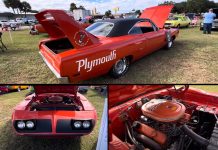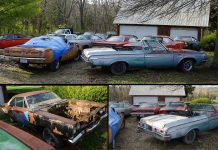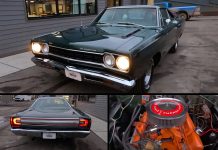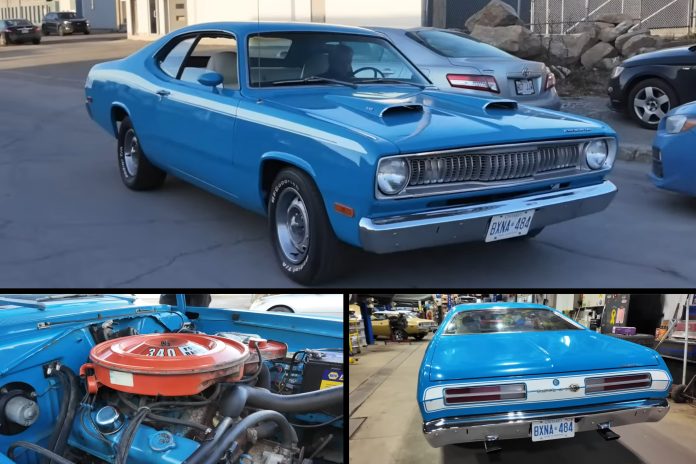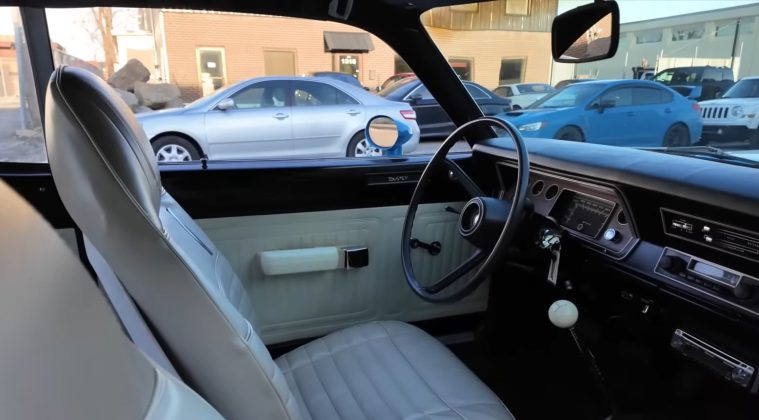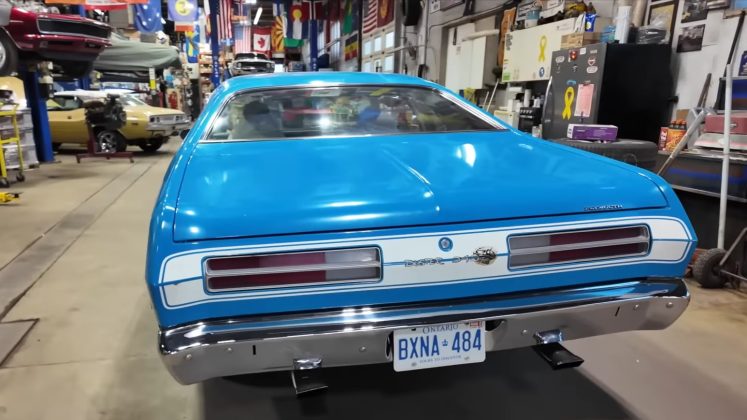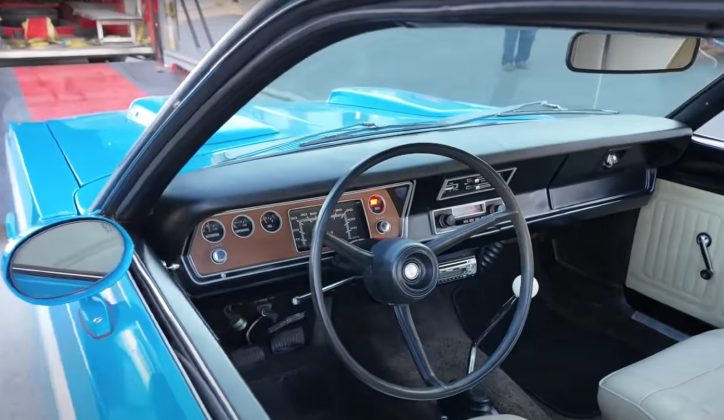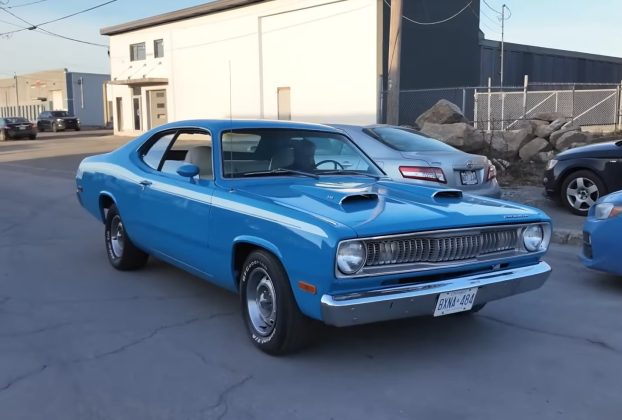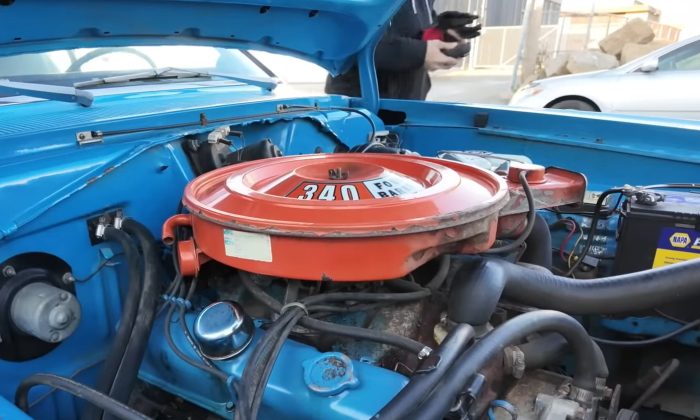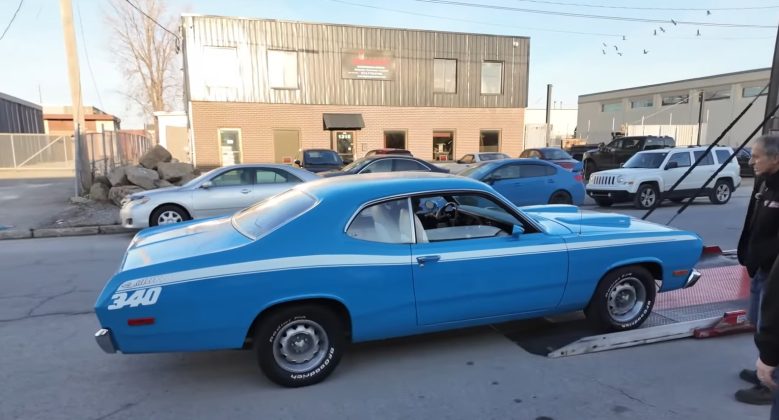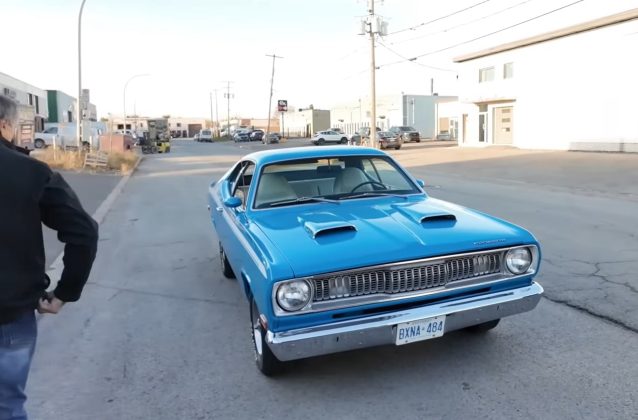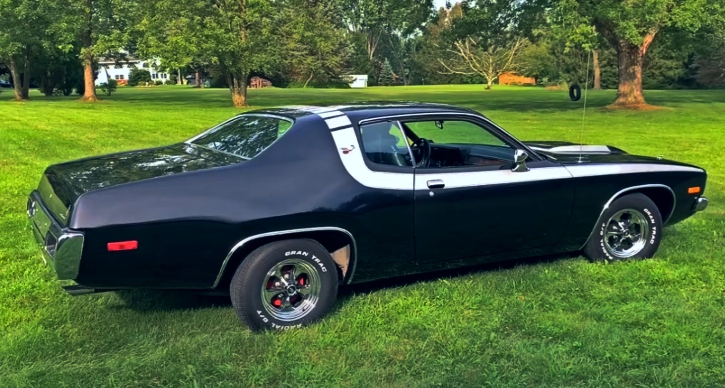The Nash Rambler and the Big Three’s Entry
Even though America’s first compact car, the Nash Rambler, hit showrooms in 1950, the Big Three only jumped on the bandwagon at the end of the decade. Chrysler introduced its first compact in 1959. The Plymouth Valiant was so successful that the company offered a second vehicle, the Duster, starting in 1969.

Unlike the Valiant, which was available as a coupe, sedan, and station wagon (until 1967), the Duster was restricted to the two-door body style. But it was more than just a coupe version of the Valiant. While it had an identical front clip, the rear section was unique and sportier.
Aimed at the Ford Maverick and AMC Hornet, the Duster was part of a $15 million effort to update Plymouth compact cars for the 1970 model year. And it paid off, as the Duster outsold the Valiant, moving more than 200,000 units in its first year in showrooms. Sales dropped to around 186,500 examples in 1971 but went beyond the 200K mark again in 1971. Deliveries spiked in 1974, during the oil crisis, to more than 280,000 units.

The Unique 1972 Plymouth Duster 340
With more than one million cars sold through 1976, the Duster is anything but rare. However, because it was an affordable vehicle with throw-away status, many examples were abandoned in junkyards and barns. Some have been restored by diehard Mopar fans, but all-original and unrestored survivors are hard to find today. The 1972 version you see here is one of those rare cars.

And it’s not a run-of-the-mill Duster either. This car left the assembly line with the 340-cubic-inch (5.6-liter) V8, the nameplate’s range-topping unit at the time. Of the 227,992 vehicles sold that year, only 15,681 were ordered with the 340. That’s less than 7% of the total production.
Moreover, it was specified with the four-speed manual, one of three gearboxes available. The Duster 340 was also sold with an automatic and a three-speed manual. There’s no specific info on how many were fitted with the four-speed, but Mopar experts agree it’s the rarest, with fewer than 4,000 made.

But regardless of how scarce this car is, it’s one spectacular Duster. Finished in Corporate Blue, more commonly known as Petty Blue, it rocks a two-tone, white-and-black interior. And both look the part, which is downright amazing for an unrestored vehicle that’s 52 years old as of 2024. It’s the kind of Mopar that would win awards at the Muscle Car and Corvette Nationals (MCACN).
And before you say it’s a Malaise-era rig with unimpressive performance, you should know that the 1972 Duster 340 is no slouch. Even though output dropped from 275 to 240 horsepower due to a reduction in compression ratio, the Duster 340 had enough oomph to hit 60 mph (97 kph) in less than eight seconds. It also covered the quarter-mile in less than 15 seconds.
# FAQs
**Q1: How successful was the Plymouth Duster in the market?**
A1: The Duster was highly successful, outselling its predecessor, the Valiant, and achieving notable sales figures, especially in 1974 during the oil crisis.
**Q2: What makes the 1972 Plymouth Duster 340 unique?**
A2: The 1972 Duster 340 is unique for being equipped with the 340-cubic-inch V8, the rare four-speed manual transmission, and its distinctive Petty Blue finish.
**Q3: How rare is the 1972 Duster 340?**
A3: Despite over a million Dusters sold, the 1972 version with the 340 V8 and four-speed manual is considered rare, with fewer than 4,000 believed to have been produced.
**Q4: How does the performance of the 1972 Duster 340 compare to its reputation?**
A4: Despite a reduction in horsepower, the 1972 Duster 340 still delivered impressive performance, hitting 60 mph in less than eight seconds and covering the quarter-mile in under 15 seconds.



